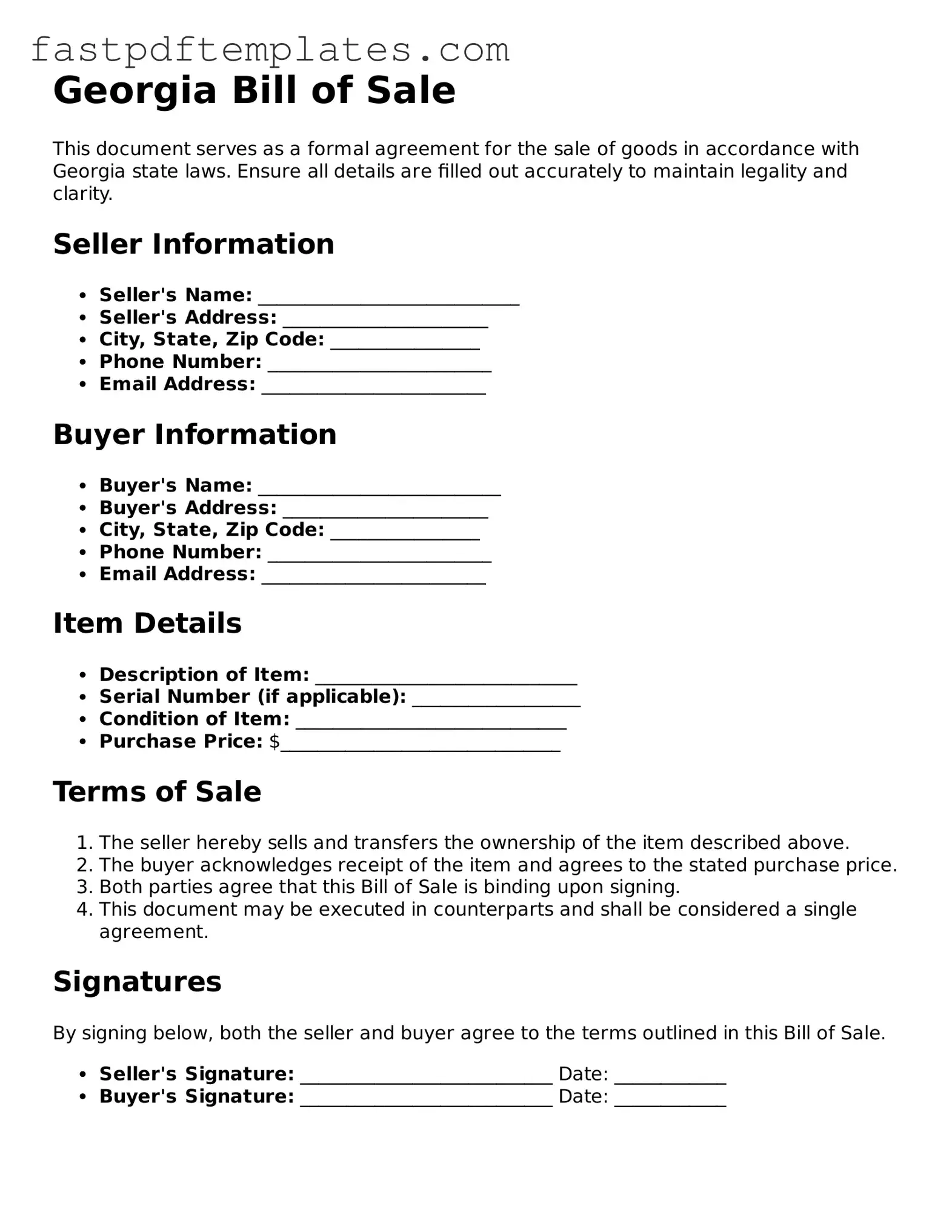The Georgia Vehicle Bill of Sale is similar to a general Bill of Sale, which is used for the transfer of ownership of various personal property items. This document serves as proof that a sale has occurred between a buyer and a seller. It typically includes details such as the names of both parties, a description of the item sold, the sale price, and the date of the transaction. Like the vehicle-specific version, it is essential for establishing legal ownership and can be used in disputes or for tax purposes.
A Boat Bill of Sale functions similarly to the Georgia Vehicle Bill of Sale but is specifically tailored for the sale of boats and watercraft. This document includes information about the boat's make, model, and hull identification number, along with the buyer's and seller's details. Both documents serve to protect the interests of both parties by providing a record of the transaction and ensuring that ownership is legally transferred.
The Georgia Firearm Bill of Sale is another document that parallels the Vehicle Bill of Sale. This form is used when buying or selling firearms. It captures essential information about the firearm, including its make, model, and serial number, as well as the identities of the buyer and seller. Like the vehicle version, it acts as a legal record of the transfer and can be crucial in confirming ownership in case of future legal inquiries.
A Motorcycle Bill of Sale is similar in nature to the Georgia Vehicle Bill of Sale, focusing specifically on motorcycles. This document includes relevant details such as the motorcycle's VIN, model, and year, along with the transaction details. Both documents serve the same purpose of facilitating the transfer of ownership and providing legal proof of the sale, ensuring that both parties are protected.
The Georgia Trailer Bill of Sale is another related document, used for the sale of trailers. It contains information about the trailer, including its make, model, and identification number, along with the buyer and seller's details. This document ensures that the transfer of ownership is documented and legally binding, similar to the Vehicle Bill of Sale.
A Personal Property Bill of Sale is also akin to the Georgia Vehicle Bill of Sale, as it can be used for various types of personal property transactions, such as furniture or electronics. This document outlines the specifics of the sale, including the description of the item, sale price, and both parties' information. It serves the same purpose of providing proof of ownership transfer and protecting both the buyer and seller.
The Georgia Lease Agreement can be compared to the Vehicle Bill of Sale in that both documents establish a legal relationship between parties regarding property. While a Bill of Sale transfers ownership, a Lease Agreement outlines the terms under which one party can use another's property for a specified time. Both documents are essential for clarifying rights and responsibilities in their respective contexts.
Finally, a Commercial Bill of Sale is similar to the Georgia Vehicle Bill of Sale, particularly in business transactions. This document is used for the sale of business assets, including equipment and inventory. It details the items sold, the sale price, and the parties involved. Like the Vehicle Bill of Sale, it serves as a legal record of the transaction, ensuring that both parties' interests are protected and ownership is properly transferred.

